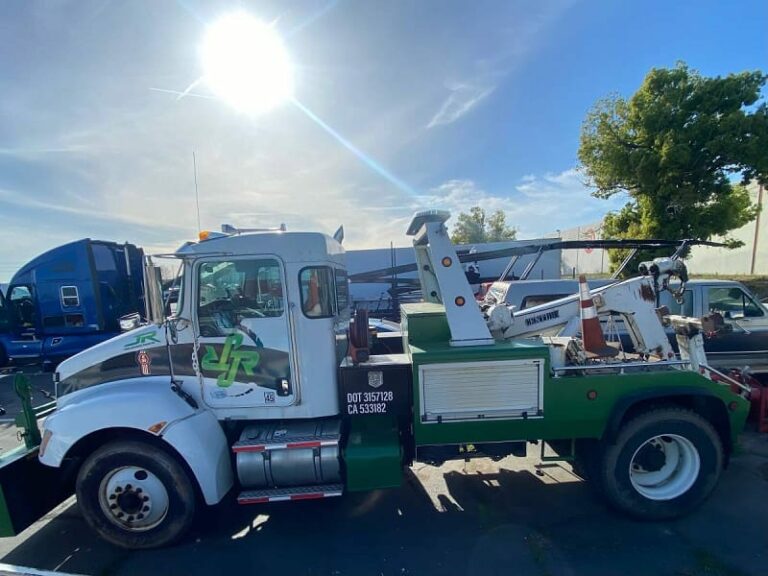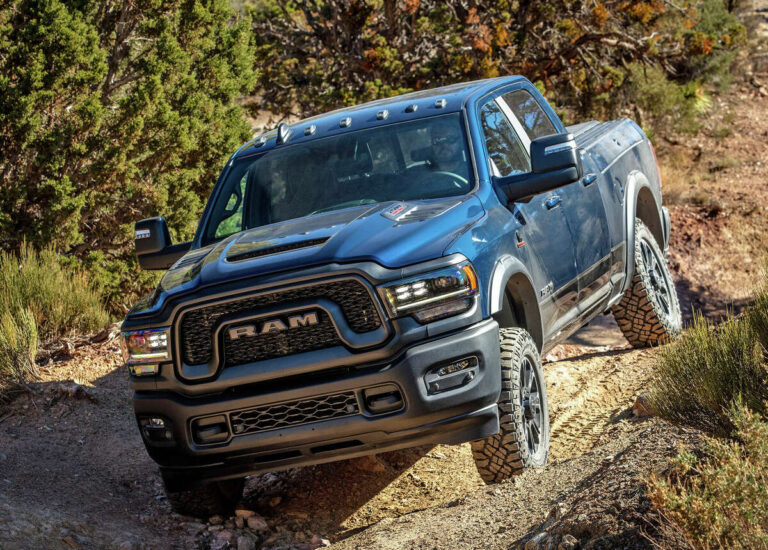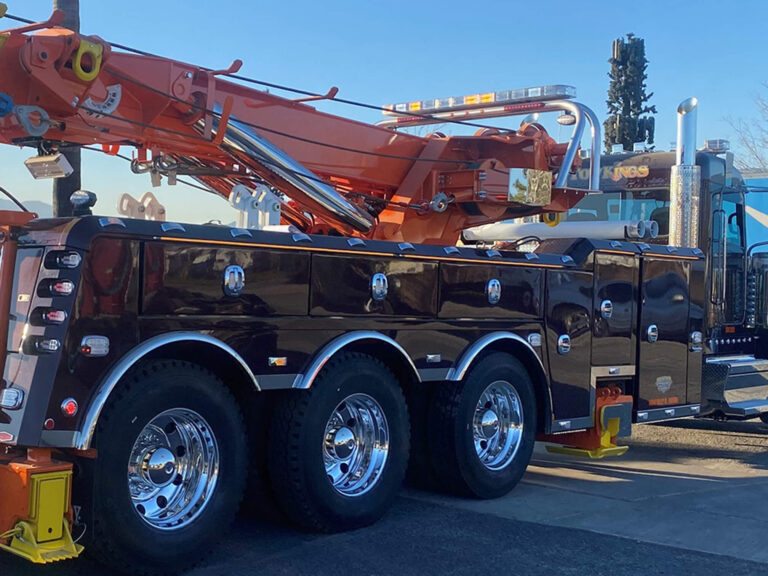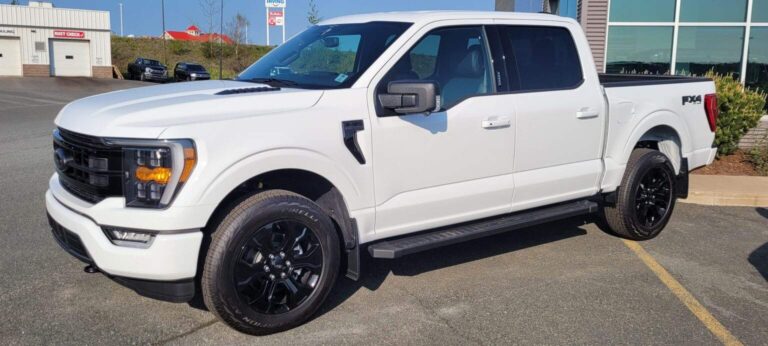Commercial Trucks For Sale In California: Your Ultimate Buying Guide
Commercial Trucks For Sale In California: Your Ultimate Buying Guide cars.truckstrend.com
California, with its colossal economy, bustling ports, vast agricultural lands, and extensive logistics networks, represents a critical hub for commercial trucking. From long-haul semi-trucks traversing the Interstate 5 to local delivery vans navigating city streets, commercial vehicles are the lifeblood of commerce in the Golden State. For businesses and independent operators looking to expand their fleet or embark on new ventures, the market for commercial trucks for sale in California is diverse, dynamic, and uniquely influenced by the state’s stringent environmental regulations.
This comprehensive guide delves into everything you need to know about navigating the California commercial truck market, offering insights, practical advice, and a roadmap for making an informed purchase.
Commercial Trucks For Sale In California: Your Ultimate Buying Guide
The Golden State Advantage: Why California’s Truck Market Matters
California’s unique position as the largest state economy in the U.S. profoundly impacts its commercial truck market.
- Massive Demand & Diverse Inventory: The sheer volume of goods transported within and through California means a constant demand for trucks, leading to a vast and varied inventory of vehicles from various manufacturers, models, and configurations. Whether you need a heavy-duty hauler or a nimble delivery truck, the options are plentiful.
- Access to Financing & Services: The robust economic environment supports a strong network of financial institutions specializing in commercial vehicle loans and leases, as well as an extensive infrastructure of maintenance facilities, parts suppliers, and certified service centers.
- Regulatory Leadership (and Challenge): California’s proactive stance on environmental protection, primarily through the California Air Resources Board (CARB), means that trucks operating here must meet some of the highest emissions standards in the nation. While this presents a challenge for older vehicles, it also ensures that the available fleet, especially newer models, is often well-maintained and equipped with advanced emissions control technology, potentially offering better fuel efficiency and reliability. Understanding and complying with CARB regulations is paramount for any truck buyer in California.
Types of Commercial Trucks Available in California

The California market caters to a wide array of trucking needs, categorized primarily by their Gross Vehicle Weight Rating (GVWR):
-
Heavy-Duty Trucks (Class 8): These are the workhorses of long-haul transportation.
- Semi-Trucks/Tractor Units: Designed to pull large trailers (dry vans, reefers, flatbeds). Examples include Freightliner Cascadia, Kenworth T680, Peterbilt 579, Volvo VNL.
- Dump Trucks: Used in construction, hauling aggregates, dirt, and demolition debris.
- Tanker Trucks: For transporting liquids or gases (fuel, chemicals, milk).
- Heavy Haulers: Specialized trucks for oversized or extremely heavy loads.


-
Medium-Duty Trucks (Class 4-7): Versatile for regional distribution, vocational work, and local deliveries.
- Box Trucks/Straight Trucks: Common for moving services, package delivery, and general freight.
- Flatbed Trucks: Ideal for transporting equipment, building materials, and large, unwieldy items.
- Refrigerated (Reefer) Trucks: Essential for perishable goods, food distribution, and pharmaceuticals.
- Utility/Service Trucks: Equipped with specialized bodies for various trades (e.g., plumbing, electrical, telecom).
- Tow Trucks: For vehicle recovery and transport.
-
Light-Duty Commercial Vehicles (Class 1-3): Often used for smaller deliveries, service calls, and last-mile logistics.
- Cargo Vans: Ford Transit, Ram ProMaster, Mercedes-Benz Sprinter.
- Commercial Pickups: Heavy-duty versions of popular pickups like Ford F-250/350, Chevy Silverado 2500/3500, Ram 2500/3500, often upfitted for specific commercial uses.
-
Specialized Trucks: Beyond standard classifications, California’s diverse economy also demands specific vocational trucks like refuse trucks, concrete mixers, fire trucks, and street sweepers.
Key Considerations Before Making a Purchase
Buying a commercial truck is a significant investment. Careful planning and thorough due diligence are essential, especially in California.
-
Define Your Needs and Application:
- What will you haul? Goods, equipment, liquids, waste, etc.
- How much weight? This determines the necessary GVWR and axle configuration.
- What distances? Long-haul vs. local delivery influences fuel efficiency, sleeper cab needs, and maintenance considerations.
- What terrain? Flat highways vs. steep grades or off-road requires different engine power and suspension.
- Specific Features: Refrigeration, liftgates, crane attachments, specialized bodies.
-
Budget and Financing:
- New vs. Used: New trucks offer warranties, the latest technology, and immediate CARB compliance, but at a higher price. Used trucks are more affordable but may require more immediate maintenance and careful inspection for CARB compliance.
- Financing Options: Explore commercial truck loans, leases (TRAC leases, FMV leases), and lines of credit from banks, credit unions, and specialized commercial vehicle lenders. Understand interest rates, terms, down payments, and balloon payments.
-
Condition and Inspection:
- Pre-Purchase Inspection (PPI): ALWAYS get an independent, certified mechanic to perform a thorough inspection, especially for used trucks. This includes the engine, transmission, brakes, tires, chassis, electrical system, and the emissions system (DPF, SCR).
- Maintenance Records: Request detailed service history. A well-maintained truck is a reliable truck.
- Mileage and Hours: High mileage or engine hours indicate wear and tear, but regular maintenance can mitigate risks.
-
California Air Resources Board (CARB) Compliance: This is the most critical and often complex factor for commercial truck buyers in California.
- Emissions Regulations: CARB has strict regulations for diesel trucks, aiming to reduce particulate matter (PM) and nitrogen oxides (NOx) emissions. The Truck and Bus Regulation (often referred to as the "CARB deadline") generally requires most diesel trucks operating in CA to have 2010 or newer model year engines or equivalent emissions technology.
- DPF (Diesel Particulate Filter) and SCR (Selective Catalytic Reduction): Newer trucks use these systems. Ensure they are functioning correctly and have been properly maintained.
- Exemptions & Grandfathering: Some older, low-mileage vehicles or specific vocational types might have limited exemptions, but these are rare and highly specific. Do not assume an older truck is compliant without direct CARB verification.
- Compliance Verification: Before purchasing, verify the truck’s compliance status using its VIN on the CARB website or by consulting a CARB specialist. Purchasing a non-compliant truck can lead to significant fines, registration denial, and an inability to operate legally in California.
-
Fuel Type and Technology:
- Diesel: Still the dominant fuel, but subject to stringent emissions rules.
- Compressed Natural Gas (CNG) / Liquefied Natural Gas (LNG): Increasingly popular, especially for fleets, offering lower emissions and often fuel incentives. Requires specific fueling infrastructure.
- Electric Vehicles (EVs): While still emerging for heavy-duty applications, California is a leader in promoting electric commercial vehicles. Consider the range, charging infrastructure, and higher upfront costs, often offset by significant incentives.
-
Operating Costs: Beyond the purchase price, factor in:
- Fuel: Significant ongoing expense.
- Insurance: Commercial truck insurance can be expensive; get quotes early.
- Maintenance & Repairs: Budget for routine service and unexpected breakdowns.
- Tires: A major recurring cost.
- Registration & Permitting: California DMV fees, IRP (International Registration Plan), IFTA (International Fuel Tax Agreement) for interstate travel.
Where to Find Commercial Trucks For Sale In California
The California market offers numerous avenues for finding your next commercial truck:
-
Authorized Dealerships (New & Used):
- Pros: Wide selection, warranties (new), financing options, certified technicians, trade-in options.
- Cons: Higher prices, less room for negotiation on new trucks.
- Examples: Freightliner, Kenworth, Peterbilt, Volvo, Mack, Isuzu, Hino, Ford, Ram, Chevrolet dealerships across the state.
-
Online Marketplaces & Listing Sites:
- Pros: Huge inventory, easy comparison, ability to filter by location, type, price.
- Cons: Scams possible, trucks may be out-of-state (check CARB compliance carefully), need to arrange inspection.
- Examples: TruckPaper.com, CommercialTruckTrader.com, MyLittleSalesman.com, eBay Motors, Craigslist (use with extreme caution), Ritchie Bros. Auctioneers (used equipment listings).
-
Commercial Truck Auctions:
- Pros: Potential for significant savings, quick transactions, wide variety of trucks.
- Cons: "As-is" sales (no warranty), limited inspection time, competitive bidding, often requires cash or quick financing.
- Examples: Ritchie Bros., IronPlanet, local public auctions, government surplus auctions.
-
Private Sellers:
- Pros: Potentially lower prices due to no dealer markup, direct negotiation.
- Cons: No warranties, higher risk of undisclosed issues, handling paperwork yourself, verifying CARB compliance is solely your responsibility.
-
Fleet Sales & Rental Companies:
- Pros: Well-maintained vehicles (often with full service histories), competitive pricing, large selection from a single source.
- Cons: High mileage common, may be basic specifications.
- Examples: Ryder, Penske, Enterprise Truck Rental often sell off their older fleet vehicles.
The Commercial Truck Buying Process: A Step-by-Step Guide
- Assess Your Needs & Set Your Budget: Clearly define the type of truck, features, and financial limits.
- Research & Locate Trucks: Use online platforms, visit dealerships, check auction schedules.
- Initial Vetting: Contact sellers, ask detailed questions (VIN, mileage, service history, CARB compliance status), and request photos/videos.
- Schedule Inspections: For promising candidates, arrange a pre-purchase inspection by a qualified, independent mechanic. Test drive the truck extensively.
- Verify CARB Compliance: Get the VIN and check the vehicle’s compliance status directly with CARB or a knowledgeable consultant. This step is non-negotiable for California operation.
- Negotiate Price: Be prepared to negotiate, especially on used trucks. Factor in any needed repairs or upgrades.
- Secure Financing: Have pre-approved financing or cash ready.
- Complete Paperwork:
- Bill of Sale: Ensure all details are accurate.
- Title Transfer: The seller must provide a clear title.
- DMV Registration: Register the truck with the California DMV. This is where CARB compliance is verified. Non-compliant vehicles cannot be registered.
- Commercial Vehicle Registration: Understand requirements for IRP, IFTA, and other state/federal permits if operating interstate.
- Obtain Insurance: Secure comprehensive commercial truck insurance before driving the truck off the lot.
Challenges and Solutions in the California Market
- Challenge: Strict CARB Regulations:
- Solution: Prioritize trucks with 2010 or newer model year engines. For older trucks, ensure they have approved CARB-compliant retrofits (which are increasingly rare and expensive for heavy-duty vehicles). Consider alternative fuel vehicles (CNG, electric) if your operation allows.
- Challenge: Higher Prices for Compliant Trucks:
- Solution: Explore the used market for well-maintained, compliant vehicles. Consider leasing options to manage upfront costs. Factor in potential long-term savings from better fuel efficiency and reduced emissions fines.
- Challenge: Limited Availability of Older, Cheaper Trucks:
- Solution: If an older, non-CARB compliant truck is your only option, understand it cannot be legally operated within California. It might be suitable for out-of-state operations if registered elsewhere, but even then, it cannot enter California. Focus your search on compliant vehicles only for CA operations.
- Challenge: Finding the "Right" Truck:
- Solution: Be patient and persistent. Utilize all available resources (dealerships, online, auctions). Consider using a commercial truck broker who can help source specific vehicles and navigate the buying process.
Estimated Price Ranges for Commercial Trucks in California
Prices for commercial trucks vary wildly based on make, model, year, mileage, condition, specifications, and crucially, CARB compliance. The table below provides estimated ranges for common types of trucks for sale in California, assuming they are CARB-compliant for operation within the state (generally 2010 engine model year or newer, or equivalent retrofits).
| Truck Type & Condition | Typical Price Range (USD) | Key Factors Influencing Price |
|---|---|---|
| Heavy-Duty (Class 8) Semi-Truck | ||
| New | $150,000 – $250,000+ | Engine power, transmission type, sleeper size, advanced safety features, manufacturer incentives. |
| Used (2018-2023, Good) | $60,000 – $150,000 | Year, mileage, engine brand/model, transmission type, condition of tires/brakes, maintenance history, CARB compliance verification. |
| Used (2010-2017, Fair) | $30,000 – $70,000 | High mileage, minor cosmetic wear, potential for more immediate maintenance needs, rigorous CARB compliance verification is crucial. |
| Medium-Duty (Class 4-7) Box Truck | ||
| New | $70,000 – $120,000+ | Box size, liftgate type, refrigeration unit, chassis manufacturer (Isuzu, Hino, Freightliner M2, Ford F-series), fuel type (diesel, gasoline, CNG, electric). |
| Used (2018-2023, Good) | $35,000 – $80,000 | Year, mileage, body condition, refrigeration unit age/condition, maintenance history, CARB compliance. |
| Used (2010-2017, Fair) | $15,000 – $40,000 | Higher mileage, potential for wear on body/interior, CARB compliance must be verified rigorously for diesel models. |
| Light-Duty (Class 1-3) Cargo Van | ||
| New | $40,000 – $70,000+ | Make/Model (Sprinter, Transit, ProMaster), wheelbase, roof height, interior upfits, engine type (gasoline, diesel, electric). |
| Used (2018-2023, Good) | $20,000 – $45,000 | Year, mileage, condition of interior/exterior, specific upfits, maintenance history. |
| Used (2010-2017, Fair) | $10,000 – $25,000 | Higher mileage, cosmetic wear, potentially more maintenance needed. |
| Specialized Trucks (Dump, Reefer, Tow, etc.) | ||
| New | $100,000 – $350,000+ | Type of specialization, chassis, capacity, specific equipment (crane, mixer, specialized body), fuel type. Highly variable. |
| Used (2010-2023, Good/Fair) | $40,000 – $200,000 | Age of specialized equipment, hours on auxiliary PTO, maintenance of specialized systems, overall condition, CARB compliance for diesel. |
Disclaimer: These are general estimates and actual prices can vary significantly. Always conduct thorough research, inspections, and price comparisons before making a purchase. CARB compliance for diesel vehicles is assumed for any truck intended for operation within California.
Frequently Asked Questions (FAQ) about Commercial Trucks in California
Q1: What are CARB regulations and how do they affect truck purchases in CA?
A1: CARB (California Air Resources Board) regulations are stringent emissions standards. For most commercial diesel trucks operating in California, the Truck and Bus Regulation requires engines to be model year 2010 or newer, or to have equivalent emissions retrofits. Purchasing a truck that does not meet these standards means it cannot be registered or legally operated in California, leading to fines and operational roadblocks.
Q2: Is it better to buy a new or used commercial truck in California?
A2: It depends on your budget and needs. New trucks offer the latest technology, warranties, and guaranteed CARB compliance but come at a higher price. Used trucks are more affordable but require thorough inspection, verification of CARB compliance, and potentially more immediate maintenance. For California, newer used trucks (2010 engine model year and up) are generally safer bets.
Q3: Where can I get financing for a commercial truck in CA?
A3: Many options exist: traditional banks, credit unions, specialized commercial vehicle lenders, and dealership financing programs. It’s advisable to get pre-approved for financing before you start serious shopping to understand your budget.
Q4: What should I look for during a pre-purchase inspection (PPI)?
A4: A PPI by an independent, certified mechanic should cover the engine (oil analysis, compression), transmission, brakes, tires, suspension, chassis, electrical system, and crucial emissions components (DPF, SCR). Also, check for fluid leaks, rust, and signs of accident damage.
Q5: Can I register an out-of-state truck in California?
A5: Yes, but it must meet California’s emissions standards (CARB regulations) to be registered and operated legally within the state. If it’s a diesel truck older than the 2010 engine model year and doesn’t have an approved retrofit, you likely won’t be able to register it in California.
Q6: What’s the average lifespan of a commercial truck?
A6: With proper maintenance, heavy-duty trucks can last 1,000,000 miles or more (often requiring engine/transmission rebuilds around 500,000-700,000 miles). Medium-duty trucks typically last 300,000-500,000 miles, and light-duty commercial vehicles 200,000-300,000 miles. California’s regulations often push for earlier fleet turnover.
Q7: Are electric commercial trucks becoming viable in CA?
A7: Yes, California is a pioneer in promoting electric commercial vehicles through incentives and mandates. While still a higher upfront investment, they offer lower operating costs (fuel, maintenance), zero emissions, and access to specific grants. Their viability depends on your route, payload, and charging infrastructure availability.
Conclusion
The market for commercial trucks for sale in California is robust, offering a vast array of options for every business need. However, navigating this market successfully requires a keen understanding of the state’s unique regulatory landscape, particularly the stringent CARB emissions standards. By thoroughly defining your needs, budgeting wisely, conducting meticulous inspections, and prioritizing CARB compliance, you can confidently acquire a reliable and legally operable commercial truck that will serve as a powerful asset to your business in the Golden State. Remember, due diligence today prevents costly headaches tomorrow.






